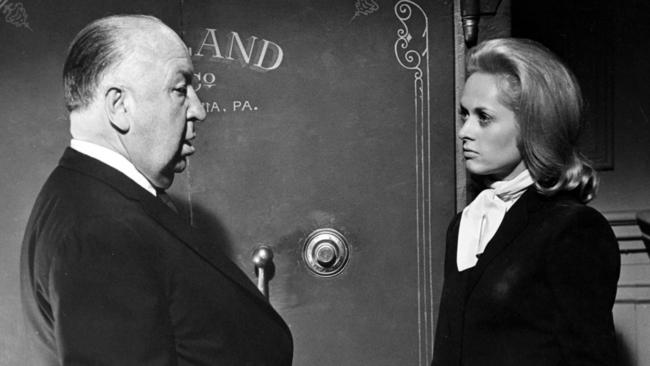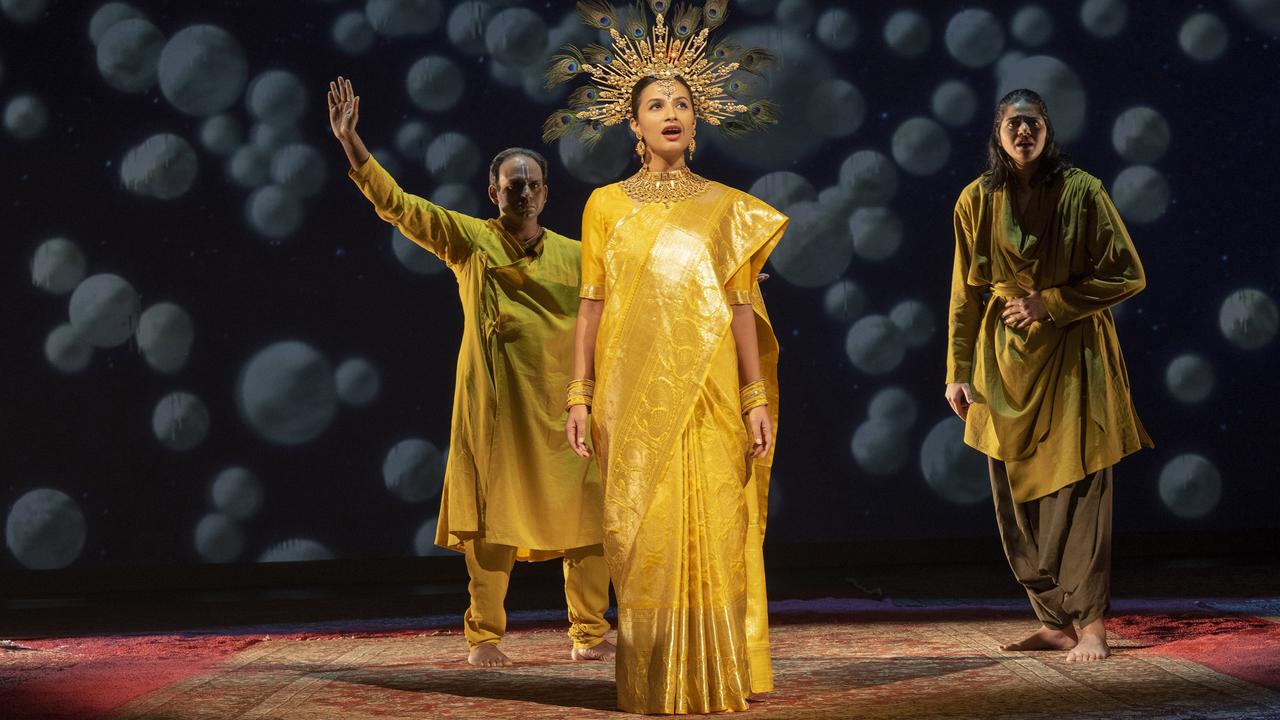Alfred Hitchcock: mysteries of the master of suspense
Unravelling the mysteries of the master of suspense, Alfred Hitchcock.

Two years ago, two esteemed literary figures sent me a short questionnaire on Alfred Hitchcock. They wondered: do I think about him? I do.
What struck me was the currency of Hitchcock (1899-1980). It’s not that he has a major anniversary, but those dates are telling. He has been dead 35 years. A group of exceptional filmmakers died at about the same moment: Howard Hawks, Charles Chaplin, Nicholas Ray, George Cukor, William Wyler, Vincente Minnelli, Douglas Sirk, King Vidor. With regret, I have to concede that those careers are now known in the halls of cinephilia but hardly anywhere else. Yet if you say “Hitch” out loud on any bus, people start looking for a bomb, or a fat man with a poker face who is studiously ignoring the search. That voice, his look, the promise, and the threat — they’re all with us still.
In recent years, many dramatic adaptations have been staged — Melbourne Theatre Company’s North by Northwest opened last month — and two feature films about him, The Girl and Hitchcock,had a commercial release. And in 2012, the poll of critics organised by Sight & Sound (it comes once a decade) determined that at long last Citizen Kane should step aside. Vertigo was the greatest film ever made.
That’s a curious shift. When it opened in 1958, Vertigo was a flop, in an age when Hitch was not accustomed to such affronts. Not long afterwards, he withdrew the film, which surely helped to increase its allure. I was entranced by Vertigo in 1958, and I am fascinated by its courage still — I mean its resolve to defy the box office and expose the workings of a secretive man. But is it even the best Hitchcock film? I’d rather see Rear Window, North by Northwest, Psycho, or Notorious. That hardly matters. As soon as you mention Psycho, the cabinet of Dr Hitchcock is ajar, allowing us to see and hear his insolent mixture of menace and contempt, murder and mischief. My problem with Vertigo’s gloom is that there are no laughs (except for the absurd ease of parking in San Francisco). When Hitch is most himself, we laugh as we cringe, and sooner or later we get the inner message — what are the movies if we don’t know whether to smile or to shudder?
When I imagined the bomb on the bus, with the fat man taking no notice, I was alluding to a big scene in Sabotage (1936), but the example is important to most of Hitchcock. He wanted to devastate us, but he preferred to stay cool and professional about it. He was confirmed in his respect for fear, like a great artist, or a great torturer. His films were experiments in what a screen, darkness, and apprehension could do, and he liked to maintain the manner of the laboratory technician, observing but himself unmoved.
So part of the recklessness in Vertigo was the way a private (if not secretive) man was prepared to disclose his own disquiet over this chronic detachment. The guilty passion glimpsed in that film was of a man falling into his own sexual fascination with a story until it drowned life. Thus the greatest film ever made (for now) is a stricken admission about film itself and the fantasy on which it feeds.
Hitchcock didn’t want to be caught out. As a young man in London, drawn into film through his skill as a graphic artist, he found himself a little laughed at as a highbrow, a man who studied film very closely as a narrative technology and who was ready to go to Germany to observe the most modern treatments of terror and menace. (He stole from Fritz Lang.) That was the spirit of art struggling to emerge in the form of a plump East London boy, a greengrocer’s son, without advantages of class and education, with only seething brilliance to belie his bulk.
Hitch never even won an Oscar for directing. As his first American employer, David O. Selznick, said, he wasn’t quite the man you’d want to have dinner with. That London drawl was to hide a fear of being common.
So Hitch became businesslike. He married a shrewd woman in filmmaking, Alma Reville, and kept all her good advice for himself. He became a maker of hits, a master of suspense and trembling audience-gratification. As late as 1962, when he sat down for that famous book-length interview with Francois Truffaut, he spoke of himself as a manipulator of emotions and a student of making money. He looked at Psycho and was proud of its profit ratio and how certain outrages had been handled. He did not bother to discuss the torment of Norman Bates, that confirmed spectator who sometimes takes impossible actions.
“It’s only a movie,” Hitch would say to keep his admirers’ feet on the ground — and to protect himself against the psychic revelations of Psycho and Vertigo, and that overlooked film The Wrong Man. But he could not stop his eyes and his mind from picturing them. He had to look.
At last, in France, he was acclaimed as an artist after decades in which the English had smiled about the way this overweight upstart with a dirty mind and meticulous movie skills made dark, teasing films but was still a lightweight. Hitch never took sides in that debate. He was fearful of coming clean, just as no peeping Tom wants to be noticed in the dark.
That special English imagination — knowing its place but superior, dirty-minded though fastidious — never deserted Hitchcock. In The Birds, when an elderly woman in tweeds tells the packed diner about bird behaviour, she could be straight from his thrillers of the 1930s.
When he first arrived in Hollywood, it was to make a country-house mystery, Rebecca, full of English or English-sounding actors. For decades, he liked that elocutionary tone in his people: it’s there in Cary Grant (another lower-class English boy who had reinvented himself). But Hitch liked ladies and gentlemen: he adored finishing-school sexpots like Grace Kelly, who could have passed in Knightsbridge or Monaco.
It’s hard to think of movies in which he used or examined America: North by Northwest is a board game goosed into life. The villain in Vertigo is very English, and he makes San Francisco seem like Fortnum & Mason. Rear Window is not New York City but a tour-de-force set. Where is America? I don’t think we see it until Psycho, which uses actual geography, abandoned back roads, a shabby motel and out-of-the-way towns where gruesomeness takes 20 years to surface.
More often, Hitch built sets and used back-projection cover for the outside world. He favoured that ploy long after others had given it up, which made it impossible not to notice that the method conformed to his understanding of life and his feeling for characters isolated from nature or society and set down in an ordeal.
Why has this work lasted? Not because the plots are plausible or the characters profound — some Hitchcock pictures are as crazy as they always were: Spellbound and Rope and Stage Fright. North by Northwest is crazed or surreal, but it has no burden of gravity. Hitch was dazzling in the unexpected things, but he became ponderous if he had to explain — think of the end of Psycho. He liked to ambush us, just as in Psycho his terrorism blew up our narrative habits by offing the glorious Janet Leigh before she or we are ready. And in the devastation of that shower killing (so many artful shots in so few seconds), as we struggle to recover, to whom we can we cling for identification?
Just that shy boy Norman, who seems willing to clean the blood away. The murder in the shower is cruel and gloating. (“Mother’s not quite herself today.”)
But the use of Norman as a rescuing agent is macabre. It is part of Hitchcock the straight-faced comic. And in the movies, he knew, comedy, even done in black and blood, lasts more reliably than true love, sincerity, and working out your problems. You have problems? Have you considered murder?
The New Republic
Foxtel’s TCM channel will screen Frenzy(Tuesday, 10pm), Family Plot (Friday, 10.10pm), and To Catch a Thief(July 11, 1.50pm). And next month, Fox Classics presents Spotlight on Alfred Hitchcock from August 10 to 14.


